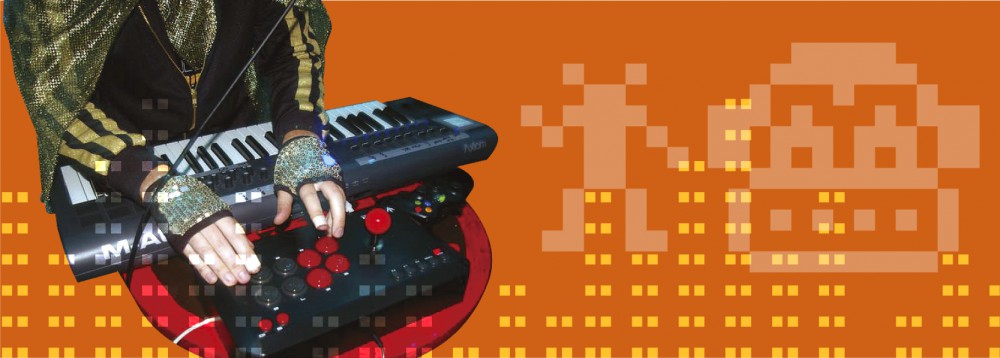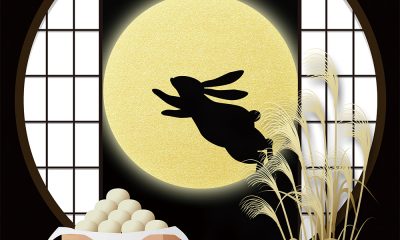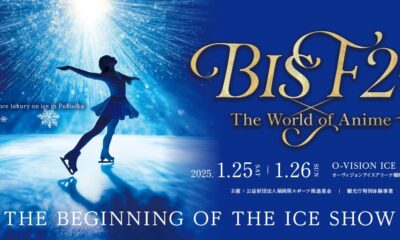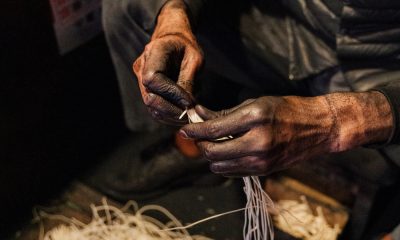Style
Bleep from the past
Before you throw away your games consoles of yesteryear, be aware they may be the musical instruments of today. KS gets down and taps its toes to the beat of chip music.
Are you ready for the next wave of popular music? It’s edgy, sometimes maddeningly simple and rarely features vocals. It’s incredibly lo-fi, raw and noisy and will probably be completely familiar to most of you. Welcome to chip music or chip-tunes or video game music or 8-bit tunes — whatever you want to call it, it’s quickly emerging as the new cult trend in music as evidenced by last year’s sold out Blip Festival in Tokyo.
Chip music is all about the revival of the comforting sounds of our childhoods — the blips and bleeps of Mario Kart and Donkey Kong made popular again. The musicians who are breathing new life into obsolete technologies, such as internationally renowned artists Nullsleep, Bitshifter and Japan’s own YMCK, belong to the first generation for whom video games and computers played an important role in childhood. Enough time has passed that these sounds and the dinosaurian consoles that make them (such as Gameboy, Nintendo Entertainment System, Commodore 64 and Sega Megadrive) are retro enough to be cool. As Kyoto-based chip artist Justin Pfeiffer (otherwise known as Xanadujin) says, “You can even hear chip samples in pop music these days.”
New technology makes creating and performing music easy — maybe too easy. Musicians can ‘perform’ an entire show with the swipe of a finger across an iPad screen. Chip music requires a little more effort. In a way, each ‘chiptune’ is a statement against the digitalization of music and the search for ‘perfect sound’. There is a reason that chip music artists are known to wear T-shirts embla-zoned with “Fuck Pro Tools” (referring to the popular digital music software) — this is a culture based on DIY and experimental hacking, utilizing hardware that is barely more sophisticated than a calculator.
There are two main ways of creating chip music: one is to use computer software to sample and manipulate video games sounds into a new piece of music. The other is to use a modified gaming device (such as a Gameboy) with scrambled insides or added switches and dials so that it can be ‘played’. The most popular software is LSDJ (Little Sound DJ), a ‘tracker’ that allows the musician to manipulate a Gameboy’s existing sounds into melodies. Some chip music purists claim that the only way to get a ‘real’ chip sound is to use a ‘modded’ piece of hardware, but this is also the most challenging way to create chip music, especially during live performances, where two or three pieces of chunky and often temperamental hardware have to be juggled.
For some chip musicians their passion for this genre lies in the nostalgia of playing with the technology and noises of their childhood. For others, the challenge of working within the limitations of something like an ancient Commodore 64 is appealing. Pfeiffer is attracted to both aspects, “Being a deep game music follower since childhood, I am naturally attracted to the sound quality of low bit waves. When you combine that old sound technology with contemporary compositional styles, you get a very unique product.”
This is a music that is born out of limitations. Chip music is not so much about creativity, but about accuracy. Whether they are using 1980s sounds or hardware or both, there is only a small palette of sounds and presets available for a chip musician to use. These snaps, buzzes and chimes are sounds that were designed for the background, but are now being brought into the spotlight. Some songs sound like they have been pulled directly from your favourite game, some sound more like modern techno-pop with vocals, melodies and layers. Either way, they are usually simple, with only a few notes and the same melody repeated over and over.
However, there are many styles within the genre including metal and pop. Dan Bruner, an American chip artist living in Osaka who regularly performs as Spacebot, describes his sound as “poppy-dance chiptunes and dabbles in chipjazz.” Inspired by Japanese chip artist YMCK, he started making chip music about seven years ago as a way of procrastinating during college. Another Osaka-based musician Glen Lloyd (JUNK!) is a one man electro-rock band who incorporates chip sounds into his songs and utilizes game hardware such as a joystick and an arcade controller in live performances. At the other end of the spectrum Xandadujin is a DJ who focuses on remixing existing game sounds into danceable techno music.
There is a huge global community of chip artists that mostly exists online, where file swapping for modifications and trackers occur via forums and message boards. The world’s most successful and high profile chip tunes festival is The Blip Festival, which hosts annual events in New York, Melbourne and Tokyo.
However, the roots of chip music lie in Japan. When electro band Yellow Magic Orchestra released the track ‘Computer Music’ in 1978 it featured a sample from the ultra-popular game Space Invaders. Since then the Japanese chip music scene has gathered momentum out of a love for game music.
Although Tokyo still has a higher number of chip and game music related events overall, Kansai has become a force to be reckoned with and is receiving attention from international producers, artists and fans. Chip music events are held regularly in Osaka, but what Pfeiffer describes as, ‘the heart of the pure chiptune scene’ is Café La Siesta in Kyoto- a small vegetarian restaurant and bar run by one of Japan’s most successful chip artists DJ Master Kohta. A select group of musicians and fans gather regularly to swap ideas, music and technology. The venue also hosts a chip music only event called ‘1H1D’ where local, Tokyo-based and international artists perform. Pfieffer explains: “It’s kind of like a mini Blip Fest. You can expect various styles of music, from upbeat to subdued, generated from Gameboys, Famicoms, PC-8801 computers, and laptops, all performed within the walls of the cafe.”
Game-music-only events in Osaka have made great progress in the last two years. Pfeiffer says, “There are now three regularly-held game music events in Osaka: Famitsu, Game Over, and Asobi no Ongaku. At a game music event, you can expect both chip-generated retro music from the past, as well as current game music from current consoles and arcades. There are also many live performers who combine chip-based synthesizers with live instruments.”
JUNK! is one of those artists who is equally comfortable playing a keyboard or a joystick and has successfully morphed game sounds with traditional electronic and pop music. He has recently started researching how physical movements via Microsoft Kinect or a Nintendo Wii remote can be used to trigger musical patterns during performances. Is that the next phase of chip music? Will the old games and hardware be replaced by brighter, shinier technology capable of creating more complex and interesting tunes? Bruner says, “Eventually, newer generations of people will not relate to the nostalgia of 8-bit sounds and it may be harder for them to get into it. I think we’ve already had our Jimi Hendrixes and Beatles — soon it will come to the point where everything has been done and chip music will have to evolve into something else. Who knows? 16-bit tune?”
[box]Local Artists
Master Kohta http://soundcloud.com/djmasterkohta
• xanadujin http://twitter.com/xanadujin
• JUNK! http://facebook/com/junkyglen
• 99 Letters www.myspace.com/99letters
International Artists
• Bit Shifter http://bit.shifter.net
• Nullsleep www.myspace.com/nullsleep
• YMCK www.ymck.net/
• 8bitpeoples www.8bitpeoples.com
DIY
NESynth (an iPhone App retro games sound synthesiser) http://itunes.apple.com
Events Cafe
- La Siesta in Kyoto hosts regular chip music events, see www.cafelasiesta.com for details
- Jul 7th: “POINT!” a techno-based event at LUXE in Shinsaibashi (http://iflyer.tv)
- Jul 15th: a free event at Osaka Castle Park Auditorium called “Rave in Japan Fes. 2012” (http://ravetaisen.jp/event) will feature several chip music performers from Kansai and Tokyo.
- Jul 28th: ‘Retro JUNK!’ a free chip music audio-visual event at Bar Iznt in Sannomiya featuring JUNK! and Xanadujin. 7:30pm start. http://iznt.net[/box]








